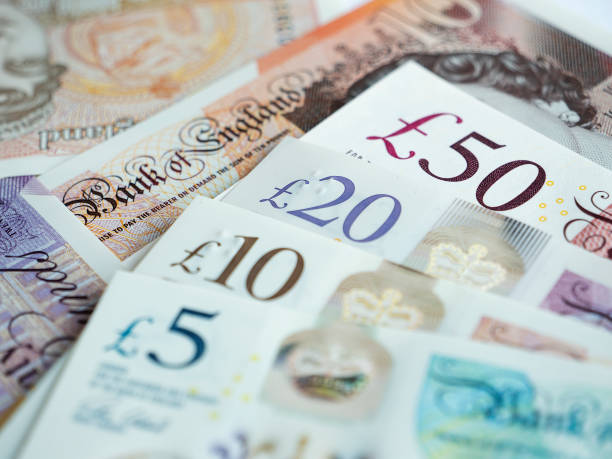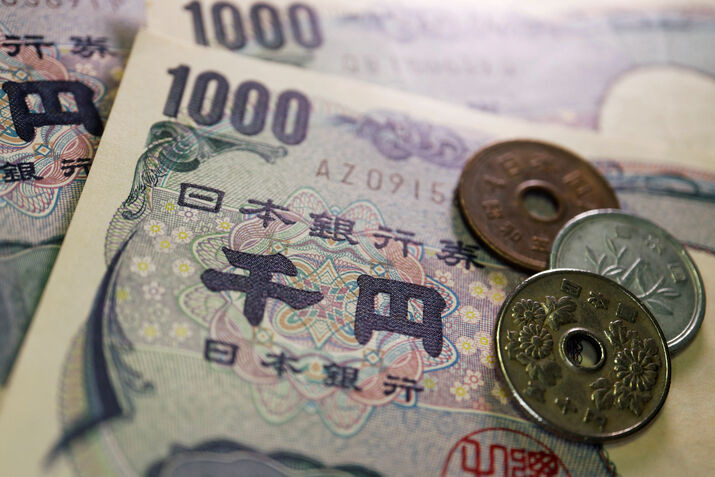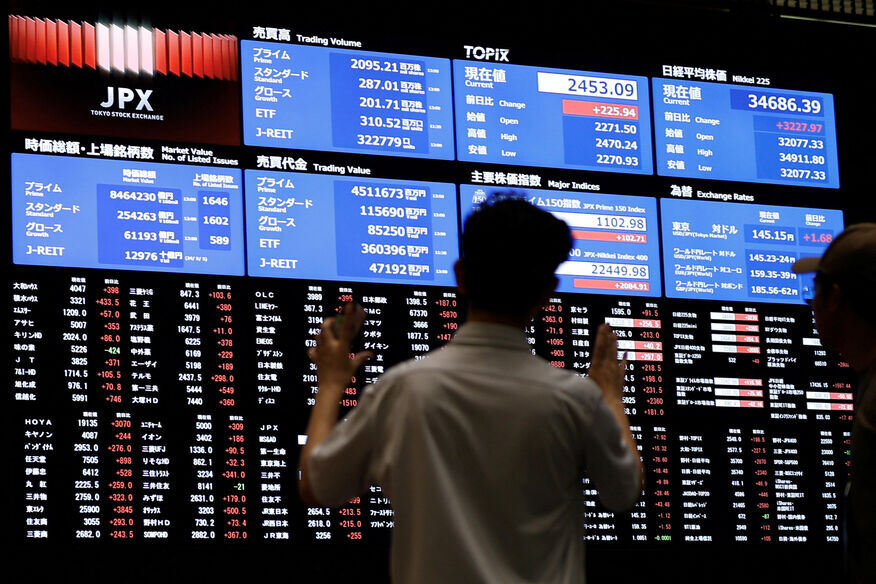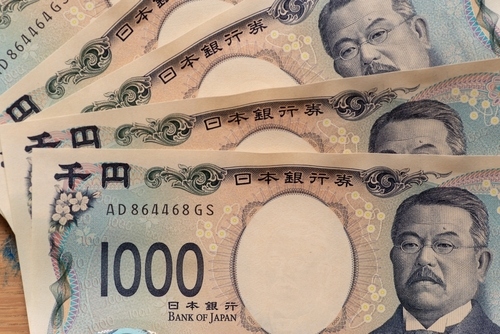GBP/JPY remains stable around 187.00 following the mixed UK labor data

- GBP/JPY receives minor support from mixed UK employment figures released on Tuesday.
- ILO UK Unemployment Rate eased to 4.1% in the three months to July, following June’s 4.2% print.
- The Japanese Yen may appreciate as recent economic data continue to bolster expectations of the BoJ increasing rates further.
GBP/JPY maintains its position above 187.00 during the Asian hours on Tuesday. The Pound Sterling (GBP) receives minor support from the mixed employment data from the United Kingdom (UK). ILO Unemployment Rate eased to 4.1% in the three months to July, following June’s 4.2% print, the data published by the Office for National Statistics (ONS).
UK Claimant Count Change showed that the change in the number of unemployed people fell to 23.7K in August, falling short of the market expectations of 95.5K and the previous 102.3K readings. Average Earnings Including Bonus (3Mo/Yr) came in at 4.0% in July, against the expected 4.1% and prior 4.6% readings.
On Monday, the GBP/JPY cross found support as the Japanese Yen (JPY) struggled following weaker-than-expected Gross Domestic Product (GDP) data from Japan. Despite this, strong economic growth, rising wages, and ongoing inflationary pressures continue to bolster expectations that the Bank of Japan (BoJ) may raise interest rates further, which has helped limit the downside for the Yen.
Japan's GDP Annualized expanded by 2.9% in the second quarter, slightly below the preliminary estimate of 3.1% and the market forecast of 3.2%. Nonetheless, this figure represents the strongest yearly growth since Q1 2023. On a quarter-on-quarter basis, GDP grew by 0.7% in Q2, falling short of the market prediction of 0.8%, but still marking the strongest quarterly growth since Q2 2023.
Shigeru Ishiba, the former Japanese defense minister and a candidate in the ruling Liberal Democratic Party's leadership race, stated on Tuesday that achieving a complete exit from deflation is a critical task for Japan, according to Reuters. Ishiba also noted, "I don't think private consumption has recovered strongly yet despite some signs of improvement."
Inflation FAQs
What is inflation?
Inflation measures the rise in the price of a representative basket of goods and services. Headline inflation is usually expressed as a percentage change on a month-on-month (MoM) and year-on-year (YoY) basis. Core inflation excludes more volatile elements such as food and fuel which can fluctuate because of geopolitical and seasonal factors. Core inflation is the figure economists focus on and is the level targeted by central banks, which are mandated to keep inflation at a manageable level, usually around 2%.
What is the Consumer Price Index (CPI)?
The Consumer Price Index (CPI) measures the change in prices of a basket of goods and services over a period of time. It is usually expressed as a percentage change on a month-on-month (MoM) and year-on-year (YoY) basis. Core CPI is the figure targeted by central banks as it excludes volatile food and fuel inputs. When Core CPI rises above 2% it usually results in higher interest rates and vice versa when it falls below 2%. Since higher interest rates are positive for a currency, higher inflation usually results in a stronger currency. The opposite is true when inflation falls.
What is the impact of inflation on foreign exchange?
Although it may seem counter-intuitive, high inflation in a country pushes up the value of its currency and vice versa for lower inflation. This is because the central bank will normally raise interest rates to combat the higher inflation, which attract more global capital inflows from investors looking for a lucrative place to park their money.
How does inflation influence the price of Gold?
Formerly, Gold was the asset investors turned to in times of high inflation because it preserved its value, and whilst investors will often still buy Gold for its safe-haven properties in times of extreme market turmoil, this is not the case most of the time. This is because when inflation is high, central banks will put up interest rates to combat it. Higher interest rates are negative for Gold because they increase the opportunity-cost of holding Gold vis-a-vis an interest-bearing asset or placing the money in a cash deposit account. On the flipside, lower inflation tends to be positive for Gold as it brings interest rates down, making the bright metal a more viable investment alternative.








